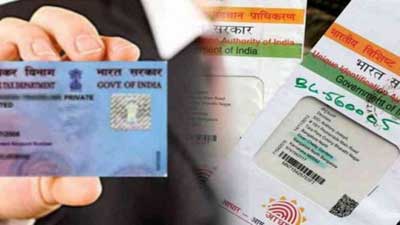Proprietorship Firm

A Sole Proprietorship, is a type of unregistered business entity that is owned and run by one natural person and in which there is no legal distinction between the owner and the business entity. Proprietorship is the simplest, oldest and most common form of business ownership someone can choose.
Sole proprietorship is the most popular business structure for startups because of its ease of formation,least record keeping,minimal regularoty controls,and avoidance of double taxation.
Sole proprietor needs to get its accounts audited u/s 44AB of IT act,1961, when the annual turnover is Rs. 1 crore and above.
ADVANTAGES
LESS EXPENSIVE
A simplified and less expensive business organization. Having control of your business.
SELF EMPLOYMENT
The owner himself is self-employed and this creates various employment opportunities. Also because the owner is in the hands of a single person, there are fewer chances of leakage of business secrets.
OWNERSHIP
Small business owners always feel good being in charge; they love being responsible for themselves and not taking orders from anyone. That’s why most small businesses are operated under the sole proprietorship type of entity.
PROFIT EARNING
This is another reason why many entrepreneurs choose the sole proprietorship form of business. The proprietorship type of business entity allows the business owner or entrepreneur to keep 100% of the profit.
TAX EASE
If you file your own tax returns and want to continue to do so, a sole proprietor setup is typically the easiest way to do so. Sole proprietor income is recorded as self-employment earnings on Schedule C of the federal tax return. While you usually have to pay self-employment taxes on the earnings, you don't have as much rigorous record-keeping and tax computing to worry about.
PRIVACY
Since a sole proprietorship does not file any formation documents or annual reports with the federal or state governments, public disclosure of business operations are not required.
Get Expert Assistance
Company Registration
Documents Required For Registration
IDENTITY AND ADDRESS PROOF
Aadhar Card, Aadhar number is now a necessity for applying for any registration in India.
Income tax return can only be filed if the person has linked his PAN card with Aadhar number.
Address proof will be required for all directors and shareholders of the company to be incorporated.
For Indian nationals, PAN is mandatory. For foreign nationals, apostilled or notarised copy of passport must be mandatorily submitted.
Residence proof documents like bank statement or electricity bill should not be more than 2 months old.
All documents submitted must be valid.

Registered Office Proof
- Register office of all companies must be in India .If it is a Rented Property, Rent agreement and NOC from a landlord. If it is a Self-owned Property, Electricity bill or any other address proof.
- Documents submitted must be valid and not more than 2 month old.

Process
OPTION 1 : MSME REGISTRATION CERTIFICATE + CHARTERED ACCOUNTANT BUSINESS CERTIFICATION.
Its Applicable In Below Conditions – Deals Within The State Only. Within State Expected Turnover Or Sales Less Than 20 Lakh Rupees.
OPTION 2 : GST REGISTRATION CERTIFICATE AS PROPRIETORSHIP ENTITY
Its Applicable In Below Any ONE Conditions – Deal Inter-State Sales Or Services. Ecommerce Or Internet Based Business. Trader Or Retailer Or Mfg Or Aggregator Within State Have More Than 20 Lakh Rupees Turnover.
CERTIFICATE TO REGISTER
CERTIFICATE TO REGISTER So Your First Step To Choose The Right Legal Entity Certificate To Register Your Proprietorship Firm Registration.
FREQUENTLY ASKED QUESTIONS
A sole proprietorship qualifies as a company, but it only has one owner and isn’t required to register with state enemies. Beginning a sole proprietorship is extremely simple and doesn’t require a formal filing or paperwork process. All you have to do is simply go into business. Though as a sole proprietor you are exempt from tedious paperwork, you must still acquire the standard set of permits and licenses of your industry. If you seed the term DBA, it stands for “doing business as” and is frequently used to indicate the existence of a sole proprietorship.
Unlike corporations, sole proprietorships are not treated separately by the IRS. This means that any profit derived from your sole proprietorship is treated as your personal income and is accounted for on your individual tax return. Any such income is taxed to you in the year it was received.
Yes. Unlike other forms of incorporation, you are personally liable for any of your sole proprietorship’s debts or legal judgments against your business. This means that in order to satisfy debts owed by your business, debt collectors can come after your personal assets — homes, cars, etc. For this reason alone, you should be extremely cautious about setting up a sole proprietorship.
Not necessarily. But every business is unique and there may be circumstances where a partnership, LLC, or some other kind of business structure is a better fit. You also may want to get more insight into the specific liabilities your sole proprietorship may face. Learn more by contacting a business organizations lawyer licensed to practice in your state.
You’ve probably heard of limited liability corporations (LLCs), limited liability partnerships (LLPs) and corporations. Sole proprietorships are business just like these companies, but they vary in a few key ways:
- Sole proprietors are the cheapest business type when it comes to operational and other costs.
- Sole proprietorships are the least complex of the legally recognized business structures.
- Sole proprietorships are exempt from mandatory state registration laws.
- Sole proprietorships don’t require formal paperwork.
- Sole proprietorships don’t shield individuals from business related debts or liability.
- Sole proprietorships don’t require a tax filing separate from personal income. Naturally, there are many differences between sole proprietorships and corporations, but these are some of the most noticeable hallmarks of them.
